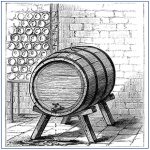
Under the Fair Debt Collection Practices Act, or FDCPA, in 15 U.S.C., the statute strictly prohibits debt collection activity which is deemed harassment, or abusive. As seen in previous statutory sections, Section 1692d, has no definition for “harassment” or “abuse” to assist the debt collector. However, the FDCPA does provide specific prohibitions against the use of language that is profane, obscene, or other actions which is intended to harass, or oppress the consumer.Read More...









